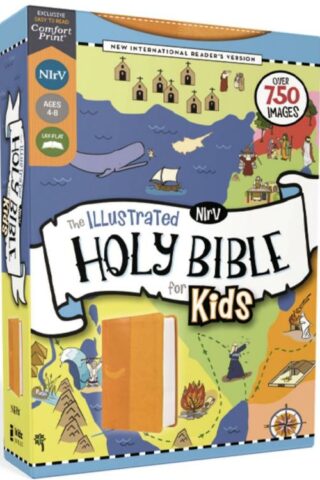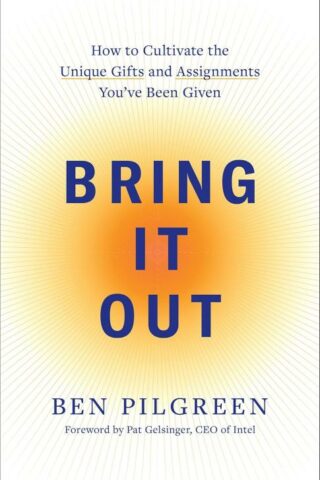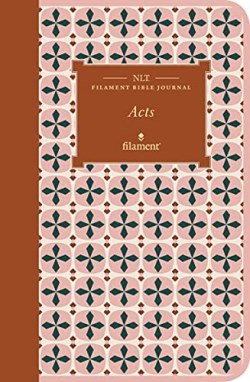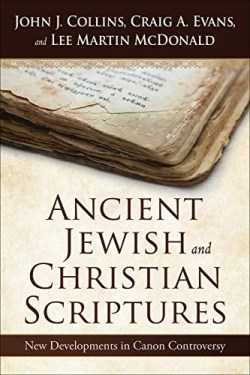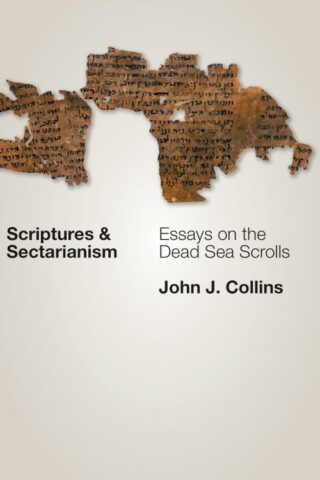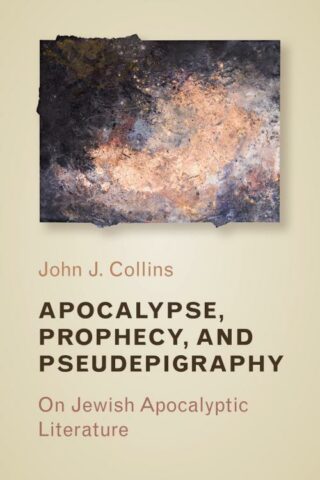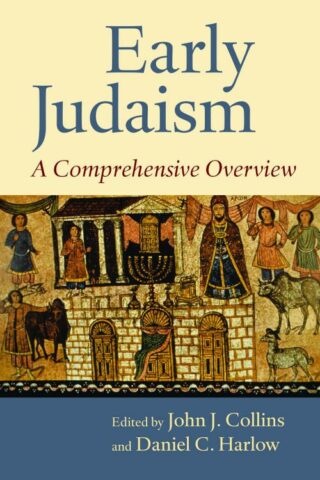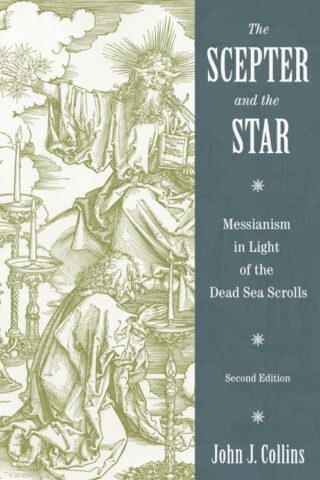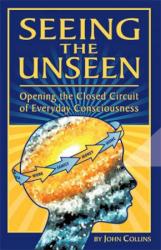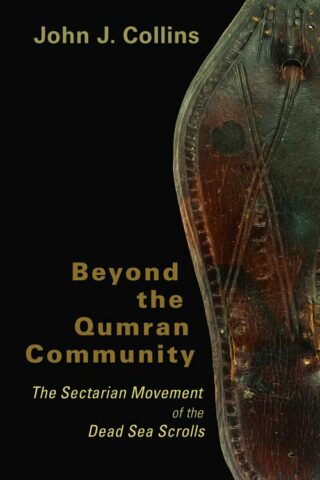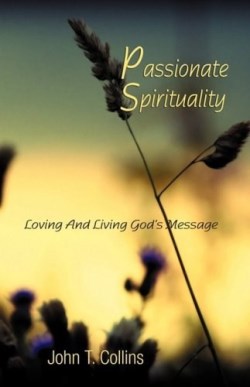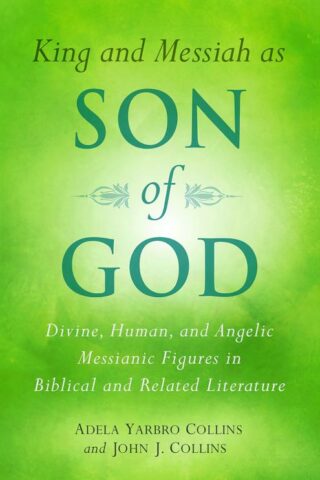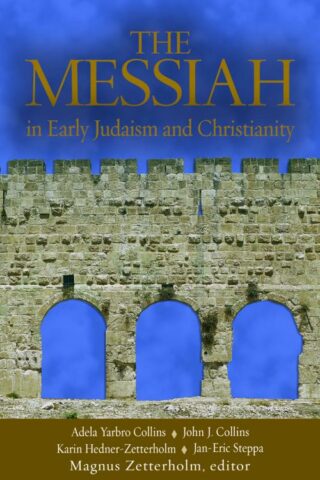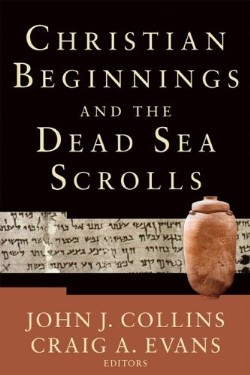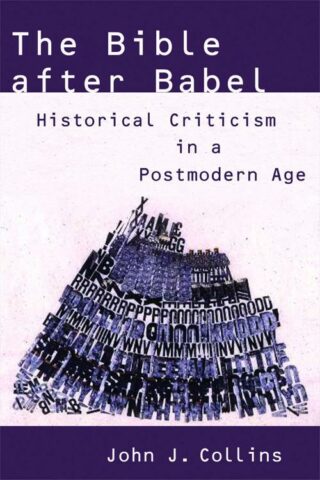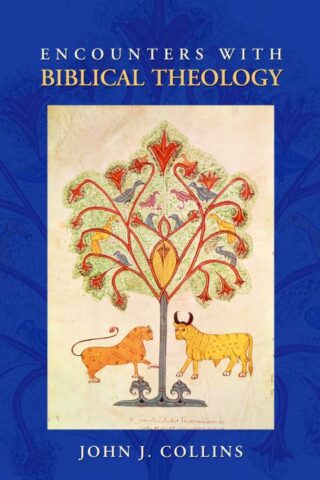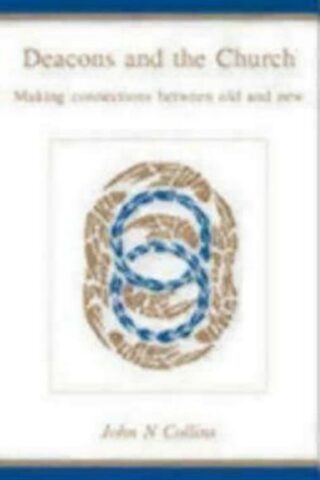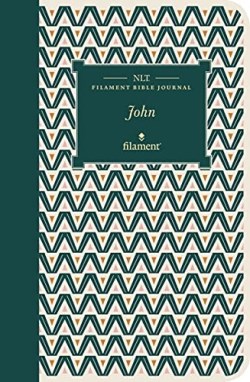John Collins
Showing all 14 resultsSorted by latest
-
Ancient Jewish And Christian Scriptures
$45.00Ancient Jewish and Christian Scriptures examines the writings included in and excluded from the Jewish and Christian canons of Scripture and explores the social settings in which some of this literature was viewed as authoritative and some was viewed either as uninspired or as heretical. John J. Collins, Craig A. Evans, and Lee Martin McDonald examine how those noncanonical writings demonstrate the historical, literary, and religious aspects of the culture that gave rise to the writings. They also show how literature excluded from the Jewish and Christian canons of Scripture remains valuable today for understanding the questions and conflicts that early Jewish and Christian faith communities faced. Through this discussion, contemporary readers acquire a broader understanding of biblical Scripture and of Jewish and Christian faith inspired by Scripture.
Add to cartin stock within 3-5 days of online purchase
-
Scriptures And Sectarianism
$48.99Essays representing ten years of John J. Collins’s expert reflection on Scripture and the Qumran community are here collected in a volume that is sure to be of interest to students and scholars of Early Judaism and the Dead Sea Scrolls.
Collins opens with the introductory chapter “What Have We Learned from the Dead Sea Scrolls?” before offering essays on the authority and interpretation of Scripture, historiography and the emergence of the Qumran sect, and specific aspects of the sectarian worldview: covenant and dualism, the angelic world, the afterlife, prayer and ritual, and wisdom. A concluding epilogue considers the account of the Suffering Servant and illustrates the relevance of the Dead Sea Scrolls for early Christianity.
Add to cartin stock within 3-5 days of online purchase
-
Apocalypse Prophecy And Pseudepigraphy
$37.99A highly regarded expert on Jewish apocalyptic texts, John J. Collins has written extensively on the subject. Nineteen of his essays written over the last fifteen years, including several previously unpublished contributions, are brought together for the first time in Apocalypse, Prophecy, and Pseudepigraphy.
After an introductory essay that revisits the problem of defining Apocalypse as a literary genre, Collins deals with a number of different topics, including the relationship between apocalypse and prophecy and the troubling ethical issues raised by apocalyptic texts. Collins also examines several specific examples to show the themes and variation present in the genre. Organized in five sections, these thematic essays complement and enrich Collins’s well-known book The Apocalyptic Imagination.
Add to cartin stock within 3-5 days of online purchase
-
Early Judaism : A Comprehensive Overview
$51.99Surveying Early Judaism is a collection of fifteen first-rate articles from a diverse group of superb international scholars. This excellent introductory volume provides a comprehensive overview of essential topics such as early Judaism in modern scholarship, Jewish history from Alexander to Hadrian, Judaism in Israel and in the Diaspora, the Jewish Scriptures, early Jewish biblical interpretation, the Dead Sea Scrolls, Philo, Josephus, and more.
Add to cartin stock within 3-5 days of online purchase
-
Scepter And The Star
$41.99John J. Collins here offers an up-to-date review of Jewish messianic expectations around the time of Jesus, in light of the Dead Sea Scrolls.
He breaks these expectations down into categories: Davidic, priestly, and prophetic. Based on a small number of prophetic oracles and reflected in the various titles and names assigned to the messiah, the Davidic model holds a clear expectation that the messiah figure would play a militant role. In sectarian circles, the priestly model was far more prominent. Jesus of Nazareth, however, showed more resemblance to the prophetic messiah during his historical career, identified as the Davidic “Son of Man” primarily after his death.
In this second edition of The Scepter and the Star Collins has revised the discussion of Jesus and early Christianity, completely rewritten a chapter on a figure who claims to have a throne in heaven, and has added a brief discussion of the recently published and controversial Vision of Gabriel.
Add to cartin stock within 3-5 days of online purchase
-
Seeing The Unseen
$15.61Abandoning at age 30 what promised to be a lucrative law practice, John Collins escaped to Spain for a three-year sabbatical to search for the meaning of life. In SEEING THE UNSEEN: Opening the Closed Circuit of Everyday Consciousness, he relates his findings in maxims and identifi es seven impediments that commonly hinder our capacity to render our everyday experience of people, places and things intelligible, meaningful and joyful. Collins believes the greatest obstacle to realizing personal fulfi llment, or salvation or the Kingdom
of God is psychological. Living our lives almost entirely on the conscious surface of Self, we neglect the unconscious core of our being, resulting in the inability of the whole Self to truly see and know reality. Collins suggests that religion’s fi nest hour may come when it assumes responsibility for healing this rupture in our innermost being, allowing us to achieve greater understanding of ourselves, of the world and ultimately, of God.Add to cartin stock within 3-5 days of online purchase
-
Beyond The Qumran Community
$29.99With the full publication of the Dead Sea Scrolls, fresh analysis of the evidence presented can be – and indeed, should be – made. Beyond the Qumran Community does just that, reaching a surprising conclusion: the sect described in the Dead Sea Scrolls developed later than has usually been supposed and was never confined to the site of Qumran.
John J. Collins here aims to deconstruct “the Qumran community” and show that the sectarian documents actually come from a text spread throughout the land. He first examines the Community Rule or Yahad. Rather than confirming the general assumption that this rulebook relates to a monastic-style community living at the site of Qumran, Collins finds instead that the Essene accounts themselves emphasize that they had settlements in every city. He also considers the Teacher of Righteousness, a pivotal figure in the Essene movement, discovering that he was probably active in the first century bce rather than in the Maccabean era. After examining the available evidence, Collins concludes that it is, in fact, overwhelmingly likely that the site of Qumran housed merely a single settlement of this widespread movement.
Add to cartin stock within 3-5 days of online purchase
-
Passionate Spirituality : Loving And Living Gods Message
$12.43Like any other relationship, our relationship with God must grow to survive — yet many Christians just go through the motions spiritually. Passionate Spirituality is a call for lukewarm Christians to dive deeper in their relationship with God, incorporating biblical principles into our daily lives. John T. Collins explores five different facets of our Christian life that, when developed and strengthened, can have a lasting impact on our relationship with God. When we cultivate grace, growth, assembling in groups, giftedness, and good stewardship, the effects will not only be felt in our personal walk with God, but also in the world around us as we reach out into the church and the community. With discussion questions following each chapter, this book is ideal for both small group study and personal reflection for Christians who want to take hold of their identity as children of God.
Add to cartin stock within 3-5 days of online purchase
-
King And Messiah As Son Of God
$33.99This book traces the history of the idea that the king and later the messiah is Son of God, from its origins in ancient Near Eastern royal ideology to its Christian appropriation in the New Testament.
Both highly regarded scholars, Adela Yarbro Collins and John J. Collins argue that Jesus was called “the Son of God” precisely because he was believed to be the messianic king. This belief and tradition, they contend, led to the identification of Jesus as preexistent, personified Wisdom, or a heavenly being in the New Testament canon. However, the titles Jesus is given are historical titles tracing back to Egyptian New Kingdom ideology. Therefore the title “Son of God” is likely solely messianic and not literal. King and Messiah as Son of God is distinctive in its range, spanning both Testaments and informed by ancient Near Eastern literature and Jewish noncanonical literature.
Add to cartin stock within 3-5 days of online purchase
-
Messiah : In Early Judaism And Christianity
$38.33The Messiah neatly surveys currents of messianic thought in the formative centuries of Judaism and Christianity, providing precision in thinking about “messianic” images and tradition. Leading scholars offer succinct and illuminating essays on the traditions that decisively shaped Jewish and Christian belief in a messiah. Includes two maps, a timeline of persons, events, and literature, and a glossary of terms.
Add to cartin stock within 3-5 days of online purchase
-
Bible After Babel
$26.99Biblical scholars today often sound as if they are caught in the aftermath of Babel – a clamor of voices unable to reach common agreement. Yet is this confusion necessarily a bad thing? Many postmodern critics see the recent profusion of critical approaches as a welcome opportunity for the emergence of diverse new techniques. In The Bible after Babel noted biblical scholar John J. Collins considers the effect of the postmodern situation on biblical, primarily Old Testament, criticism over the last three decades. Engaging and even-handed, Collins examines the quest of historical criticism to objectively establish a text’s basic meaning. Accepting that the Bible may no longer provide secure “foundations” for faith, Collins still highlights its ethical challenge to be concerned for “the other” – a challenge central both to Old Testament ethics and to the teaching of Jesus.
Add to cartin stock within 3-5 days of online purchase
-
Encounters With Biblical Theology
$38.33This important book for use in Old Testament courses is also a valuable resource for those exploring the role of the Bible in culture today. The articles include:
Theoretical Issues
“Is a Critical Biblical Theology Possible?”
“Biblical Theology and the History of Israelite Religion”
“The Politics of Biblical Interpretation”The Pentateuch
“Faith without Works: Biblical Ethics and the Sacrifice of Isaac”
“The Development of the Exodus Tradition”
“The Exodus and Biblical Theology”
“The Biblical Vision of the Common Good”Wisdom and Biblical Theology
“The Biblical Precedent for Natural Theology”
“Proverbial Wisdom and the Yahwist Vision”
“Natural Theology and Biblical Tradition: The Case of Hellenistic Judaism”Apocalyptic Literature
“Temporality and Politics in Jewish Apocalyptic Literature”
“The Book of Truth: Daniel as Reliable Witness to Past and Future in the United States of America”
“The Legacy of Apocalypticism: Christian Adaptations of Jewish Tradition”
“Jesus and the Messiahs of Israel”
“Jewish Monotheism and Christian Theology”Add to cartin stock within 3-5 days of online purchase

